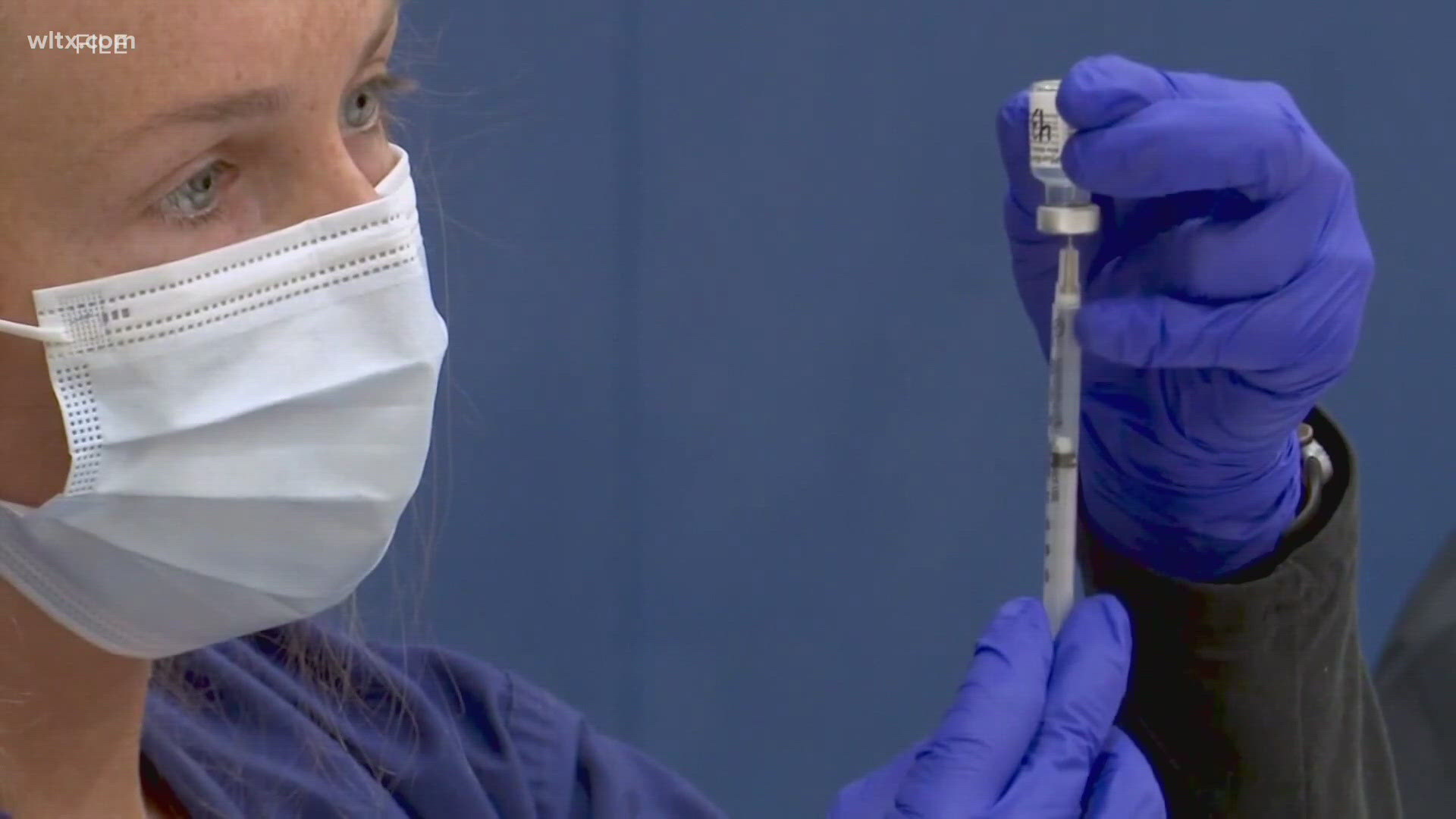COLUMBIA, S.C. — Cooler weather has arrived in the Midlands. That means we will soon see an increase in respiratory illnesses, like flu and COVID-19. The South Carolina Department of Public Health wants everyone to be prepared by getting vaccinated.
"As people gather, as people go different places, people that take cruise ships, people that go to weddings, they are going to come back with possible covid symptoms. RSV tends to be ... we'll start seeing it when it gets colder," said Kelly Warnock, Advanced Practice Registered Nurse, with the Medical University of South Carolina.
Warnock's office has seen patients with those COVID symptoms. She says that the flu is coming little by little, but when the temperature starts to drop, we will see more flu cases. Warnock also said that people have COVID-19 and mistake it for something else.
“I swab them, and, lo and behold, they'll come back with COVID, and they are astonished as I am that they are more and more being positive. But you can't just assume that you have a sinus infection, it needs to be checked out," Warnock said.
The South Carolina Department of Public Health (DPH) is encouraging people to stay protected by getting both the latest COVID-19 and flu vaccines.
The new COVID-19 vaccine for 2024-2025 is now available. The health agency says that it is important to receive the updated vaccine because it gives the best protection from the currently circulating strains of the viruses.
Both vaccines are recommended for everyone 6 months and older. They can get both at the same time. Meanwhile, some babies and older adults may need to get an RSV vaccination.
"RSV attacks a respiratory system again, and they're very young and they're very old, and anybody that has comorbid conditions along the way. And it's some people, it looks like a bad cold. Other people, it turns into a respiratory failure, and they stop breathing," Warnock said.
Health officials recommend the RSV vaccine for infants younger than 8 months during RSV season and high-risk children ages 8 months through 19 months. But it is important to talk to your child's doctor first.
There are other simple measures people can take.
"Wash your hands. Wash your hands. Use hand sanitizer on a regular basis. Avoid crowds that do not give you access to maintain four-to-six-foot perimeter for somebody. Man, if you got a small baby, don't let people hug and kiss on that baby. You know they can do that from a distance. You do not know what the cold that an adult might have how that might translate into that newborn," said Warnock.
Vaccination can be obtained at your local pharmacy or healthcare provider. If you don't have insurance or if your insurance doesn't cover vaccines, you may be eligible for no cost vaccines at DPH clinics.

